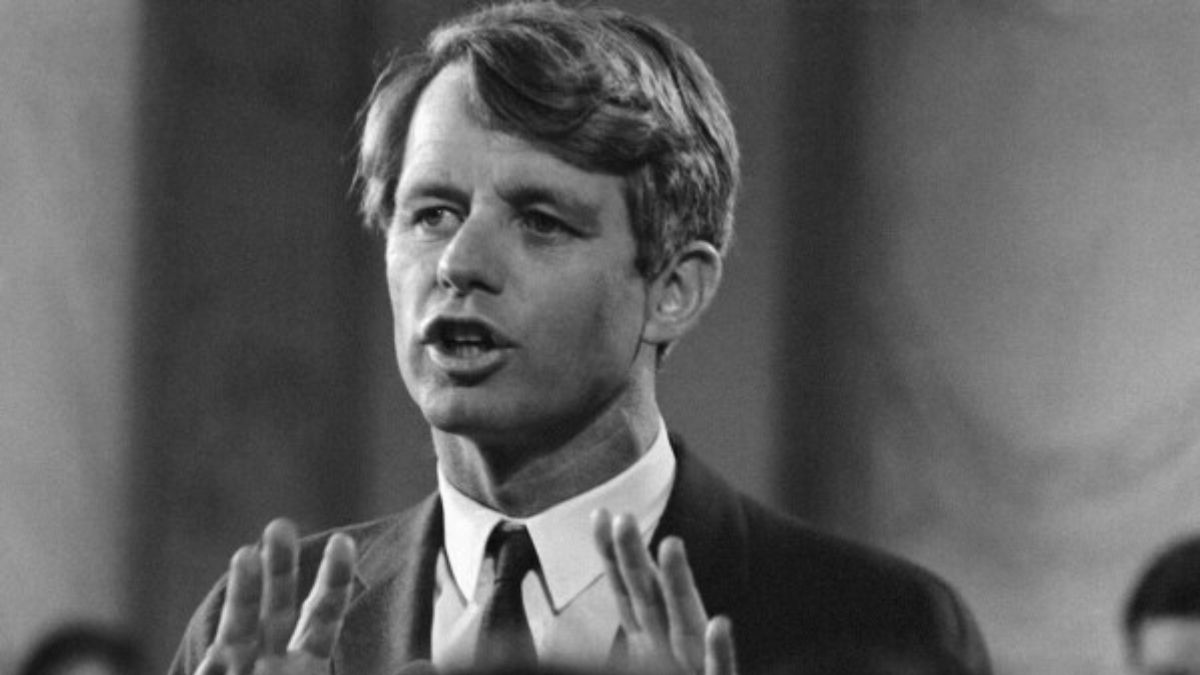It was a shocking moment as people across the world watched Senator Robert F Kennedy being fatally shot on June 5, 1968. He was assassinated in the Ambassador Hotel in Los Angeles, California.
If you are a history geek who loves to learn about important events from the past, Firstpost Explainers’ ongoing series, History Today will be your one-stop destination to explore key events.
On this day in 1967, the six-day war between Israel and its Arab neighbours namely Egypt, Syria and Jordan broke out. In 1981, the first officially recognised cases of what would later become known as Aids (Acquired Immunodeficiency Syndrome) were reported in the United States.
Here is all that took place on this day across the world.
Robert F Kennedy was fatally shot
US Senator Robert F Kennedy (RFK) was fatally shot on June 5, 1968, shortly after winning the California Democratic primary and delivering a victory speech at the Ambassador Hotel in Los Angeles.
Exiting through a kitchen pantry, Kennedy was shot multiple times by 24-year-old Palestinian Sirhan Sirhan, who opposed his pro-Israel views. The attack, witnessed by supporters and staff, caused immediate chaos. Critically wounded, Kennedy was rushed to the hospital but died from his injuries on June 6 at age 42. Five others were also injured in the shooting.
Although the younger brother of President John F Kennedy, Robert F Kennedy forged his own path in public service, first as US Attorney General and then as a US Senator representing New York. After his brother’s 1963 assassination, RFK emerged as a powerful and independent political figure.
His 1968 presidential campaign resonated with calls for civil rights, an end to the Vietnam War, economic justice and national reconciliation. His death, in the tumultuous year of 1968, just two months after Dr Martin Luther King Jr’s assassination , profoundly shocked the United States. This further undermined public trust in its political institutions and intensified collective sorrow.
Following the shooting, Sirhan Sirhan was arrested at the scene and subsequently convicted of first-degree murder. Yet, despite his continued imprisonment, his case consistently sparks debate and a myriad of conspiracy theories.
The Six-Day War in West Asia began
The famous war of West Asia, the Six-Day War began on June 5, 1967, during which Israel fought its neighbours namely Egypt, Syria and Jordan. The war had been building for months, fueled by border skirmishes, the mobilisation of Arab forces and Egypt’s closure of the Straits of Tiran to Israeli shipping. This blockade was seen by Israel as an act of war.
On the morning of June 5, Israel executed Operation Focus, a preemptive airstrike that effectively destroyed most of Egypt’s air force before it could take flight. This decisive action secured immediate air superiority for Israel, an advantage further cemented by subsequent strikes against Syrian and Jordanian air forces.
In a six-day blitz, Israel seized vast territories, including Egypt’s Sinai Peninsula and Gaza Strip, Jordan’s West Bank and East Jerusalem, and Syria’s Golan Heights. The unprecedented speed and decisiveness of this military victory reshaped the regional landscape, astonishing global observers.
The war concluded on June 10 with a UN-brokered ceasefire. Although Israel’s landmass more than tripled, the acquired territories simultaneously laid the groundwork for enduring conflict. The mass displacement of Palestinians, the military occupation of Arab lands, and the profound humiliation of Arab nations exacerbated the Israeli-Arab conflict for decades to come.
The first case of Aids is reported
The first case of what would later turn out to be Aids (Acquired Immunodeficiency Syndrome) was reported by the Centers for Disease Control and Prevention (CDC) in the United States on this day in 1981. The report, published in the Morbidity and Mortality Weekly Report (MMWR), detailed five cases of a rare lung infection, Pneumocystis carinii pneumonia (PCP), in previously healthy young men in Los Angeles. All five were gay, and the unusual clustering of the illness raised alarms in the medical community.
These initial cases provided the first documented evidence of a mysterious immune system collapse, which rendered patients susceptible to unusual infections and aggressive cancers. While the term “Aids” wouldn’t be coined until 1982, this report undeniably signalled the official onset of the Aids epidemic.
In its early stages, the condition remained largely unknown, posing a significant medical mystery and escalating concern as similar immune deficiencies surfaced in urban centres like New York and San Francisco. By the close of 1981, 270 cases had been reported, resulting in 121 fatalities.
In the ensuing years, scientists pinpointed the human immunodeficiency virus (HIV) as the causative agent of Aids. The epidemic swiftly transformed into a global crisis, bringing far-reaching social, political, and medical consequences. Simultaneously, public fear and widespread stigma rapidly intensified, disproportionately affecting the LGBTQ+ community, intravenous drug users, and haemophiliacs.
This Day, That Year
On this day in 1944, during World War II the Allied forces entered Rome.
Absolute monarchy in Denmark was abolished on this day in 1849.
)